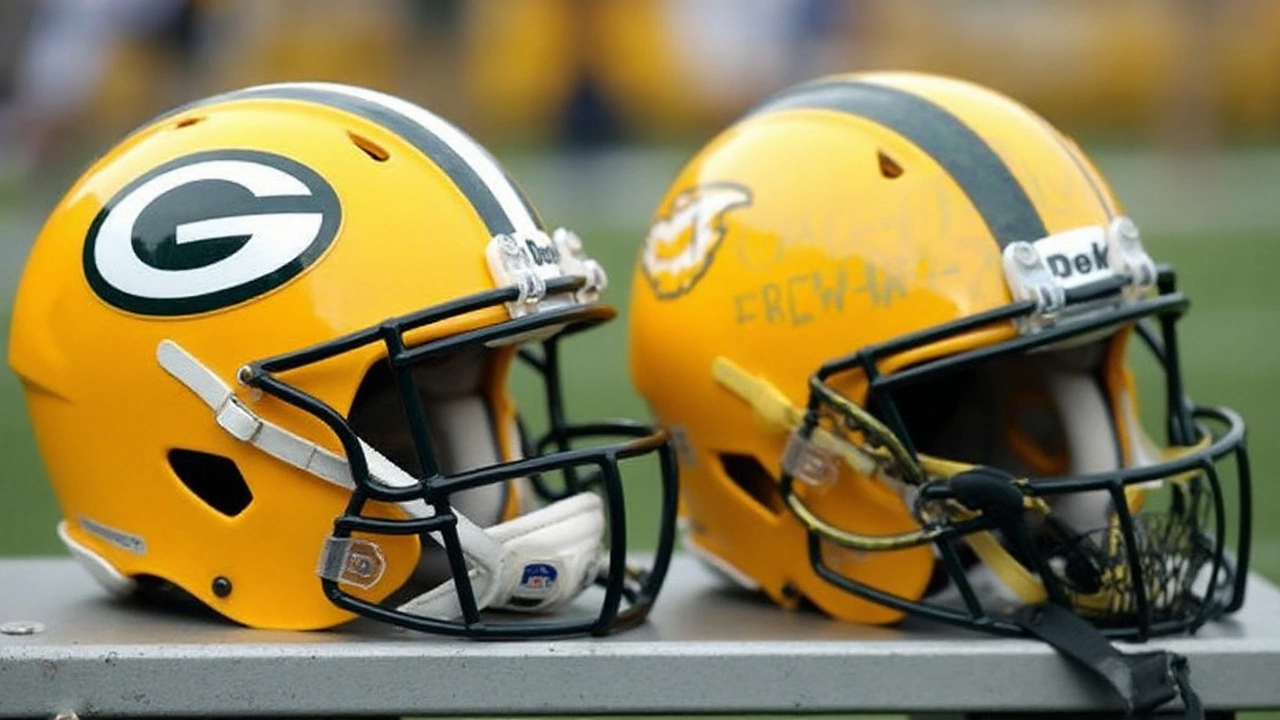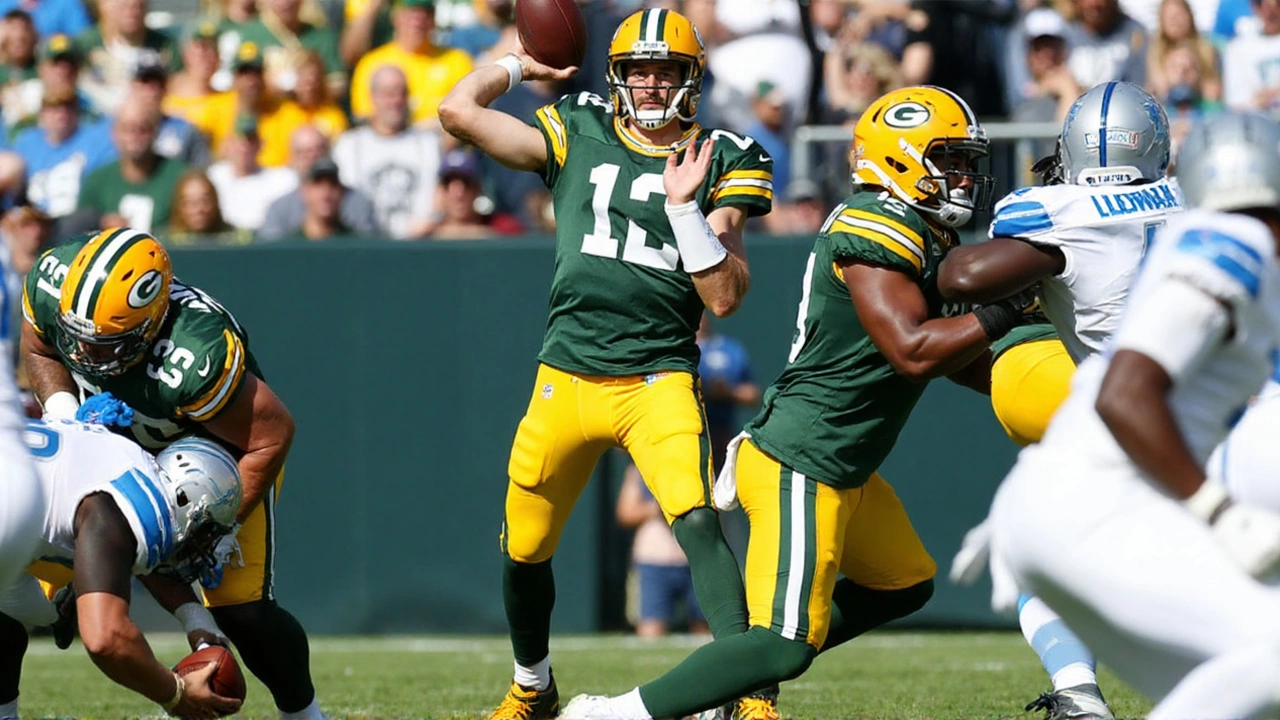Washington arrived as a threat. Lambeau reminded them why it’s a problem.
The scoreboard didn’t just flash a nine-point win; it underlined a familiar theme. The Packers beat Washington 27-18 on Thursday night, and the Commanders’ drought at Lambeau Field rolled on for another year. They haven’t won there since 1986, and that 39-year gap still hangs over these matchups. For an early-season game between two 1-0 teams, this one carried a bit more weight than usual—part reputation check, part playoff tiebreaker seed planting.
You could feel the pregame buzz because of how both sides entered. Washington came in with receipts: a 12-5 run last season, a trip to the NFC Championship Game, and an opening-week 21-6 dismantling of the Giants that made their defense look locked in and their offense composed. Green Bay, fresh off an 11-6 year and a Wild Card exit, had home field, crowd noise, and a chance to set a tone against an opponent that had the look of a January problem.
This was also about the quarterback on the other sideline. Jayden Daniels is 24, in year two, and dangerous in ways that keep coordinators up at night. He doesn’t just run; he glides and slides, then throws darts when you think he’s taking off. Washington built around that skill set, with speed in space and a plan to tilt the math in the box. Holding edges, tackling in the flat, and staying disciplined in the rush were non-negotiable for Green Bay if they wanted to keep the game on schedule.
Context mattered too. It was a short week, and Thursday Night Football always scrambles the routine. Recovery is tight, game plans get streamlined, and small details—crowd noise for the Washington offense, substitution pace for both teams—tend to swing drives. When talent is close, those little edges can decide it.
If you boiled the pregame picture into a quick snapshot, it looked like this: Packers vs Commanders was a clash of a rising Washington core against a Green Bay team that knows how to defend its house. Washington had the momentum and the quarterback. The Packers had the building, the crowd, and a knack for turning games into 60-minute tests of patience.
- Playoff pedigree: Washington’s 12-5 season and NFC Championship appearance set a high bar and framed them as legit contenders.
- Quarterback threat: Daniels’ dual-threat profile forces defenses to choose between squeezing the pocket and respecting the sideline sprint.
- Fast start: A 21-6 Week 1 win over the Giants gave Washington clean film, especially on defense.
- Lambeau problem: No Washington win in Green Bay since 1986—a long mental and practical hurdle.
- Series balance: Green Bay leads 22-17-1 all-time, but Washington won their most recent meeting in 2023.
- Young core: Washington’s roster has speed, length, and an identity built to grow with its quarterback.
- Real stakes: Two 1-0 teams setting early NFC positioning, with tiebreaker ripples that can matter later.
That’s the backdrop. The question was what happens when the ball is snapped and the scripted plays run out.

What happened on Thursday night—and what it says about both teams
Green Bay’s 27-18 win wasn’t flashy, but it was layered. The Packers handled early downs, avoided the big mistake, and made Washington play from spots that don’t suit a young quarterback in a loud road environment. That’s good coaching on a short week. It was also a blueprint for dealing with Daniels without overcommitting bodies and giving up explosives.
Start with the rush plan. Green Bay used patience more than panic—keeping rush lanes tight, pinning the edges, and forcing Daniels to climb rather than break contain. When he did escape, the pursuit was direct and controlled, not reckless. That matters with a quarterback who punishes chaos. The idea wasn’t to rack up sacks; it was to keep him in decision-making mode and make him throw through tight windows.
The coverage picture backed that up. The Packers mixed looks pre-snap, rotated late, and closed space after the catch. Washington’s timing in the short game held up at points, but the explosive plays that usually come off second-reaction throws never tilted the scoreboard. That was the difference between a wild chase and a steady recline in Green Bay’s favor.
On offense, the Packers were deliberate. Not conservative—deliberate. They leaned into quick-game answers, used motion to diagnose coverages, and sprinkled in screens to slow down Washington’s front. When they needed chunk gains, they didn’t force hero throws into traffic. They took what the game allowed, then picked their moments to push the ball when protections and matchups lined up.
Third down told a story too. Green Bay kept its own third downs short and manageable and nudged Washington’s into longer downs after solid early-down defense. When the crowd gets loud and you’re staring at third-and-7 plus, the margin for error shrinks. Daniels is going to win his share of those over time. On Thursday, Green Bay tipped enough of them to tilt field position.
Red zone execution is where Washington will feel the sting when they review the tape. The yardage wasn’t the problem. Finishing drives was. Too many possessions ended with the wrong kind of points or with nothing at all. You can beat middle-of-the-pack teams with that profile. You can’t do it on the road against a team that manages games well and puts your defense back out there again and again.
Washington’s defense still looked like a group that can stack wins. The edges set strong. Tackling was mostly clean. The interior closed rushing lanes in predictable spots. What got them was a mix of field position, Green Bay’s tempo control, and a lack of takeaways. On a short week, you usually need a cheap possession or two to flip the script. They didn’t get it.
Special teams and hidden yards often decide games like this. Field position favored Green Bay often enough to matter. Shorter fields meant more ways to score, and fewer things had to go perfectly. That’s often the gap in these nine- to ten-point games. It’s not about a highlight. It’s about forcing an opponent to play uphill while you’re moving side to side on a ridge.
The history narrative was always going to hover—39 years without a Washington win at Lambeau is tough to ignore—but it wasn’t just mystique. It was situational football. Green Bay kept penalties in check, handled substitutions, and ran the clock when it needed to. Washington had flashes, but flashes don’t win when the other side is happy to string together eight-play drives and kick your defense into a long night.
So what does it say about both teams moving forward? For Green Bay, it’s validation that the plan to win on defense and structure the offense around rhythm and protection is portable. There will be weeks where the explosive throws and long runs show up. There will be others like this, where it’s small bites and steady control. Either way, it travels.
For Washington, this isn’t a crisis. It’s a report card. The Commanders still look like a team with a top-tier ceiling, but the road formula needs tightening. Silent counts, first-down variety, and finishing drives—especially after sudden-change plays—are the next steps. Daniels is an accelerant for this roster; the task now is turning his off-schedule talent into on-schedule efficiency when the building is loud and the plan gets stress-tested.
Zoom out, and the framing sticks. Washington remains a legitimate threat in the NFC, thanks to last year’s deep run and a young core that will win a lot of weeks. Green Bay banks an early tiebreaker and a home win, which matters in a conference where 10 or 11 wins can bunch up at the top. These September games feel routine until you get to New Year’s and sort out who hosts whom.
There’s also the psychological piece. For Washington, Lambeau still represents a lingering to-do list. Breaking that streak would have been a marker, both inside the locker room and across the conference. Instead, it’s another reminder that road wins against steady teams demand precision—not just energy. For Green Bay, winning this kind of game builds trust in the formula. You don’t have to be perfect if you’re consistent.
The Commanders’ 2023 win in the most recent meeting hinted they had Green Bay’s number. Thursday reset that conversation. The Packers managed the hype, handled the quarterback, and leaned on their building. Washington leaves 1-1 with plenty of credible tape and enough corrections to keep coaches busy through the mini-bye. Green Bay walks into the weekend at 2-0, with a performance that looked more like a January rehearsal than a September experiment.
It wasn’t a blowout. It didn’t need to be. It was a grown-up win against a dangerous opponent. If you’re Green Bay, that’s the point. If you’re Washington, it’s a reminder that the leap from contender to closer is measured in red-zone details, third-down sequencing, and how your quarterback looks when the pocket gets tight and the sideline clock is running hot.
The next time these two meet, the storylines will look familiar: Daniels’ growth, Washington’s ceiling, Green Bay’s balance, and whether the Lambeau narrative ever budges. For now, the scoreboard says 27-18 and the standings shift by a game. In a long NFC season, that’s both a small thing and a very real thing.


Write a comment